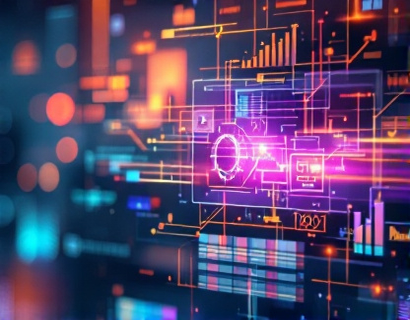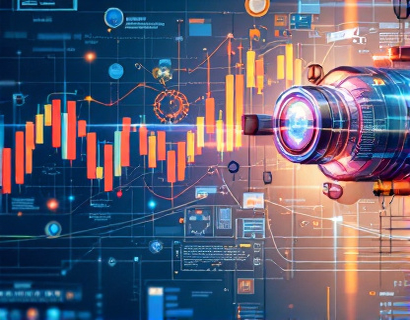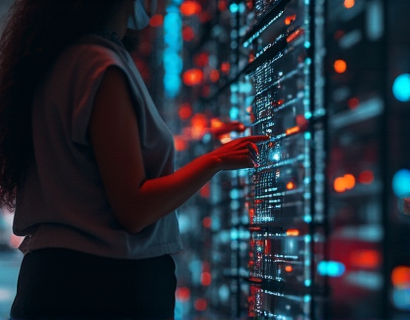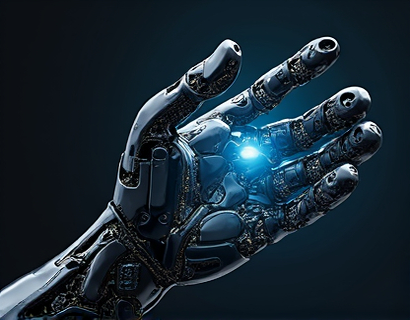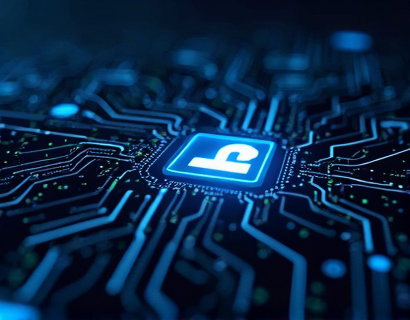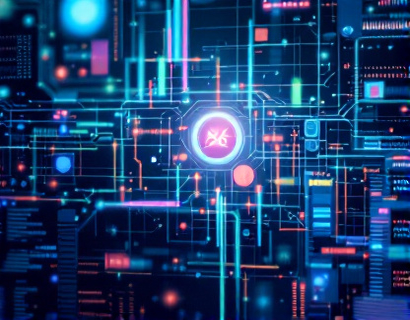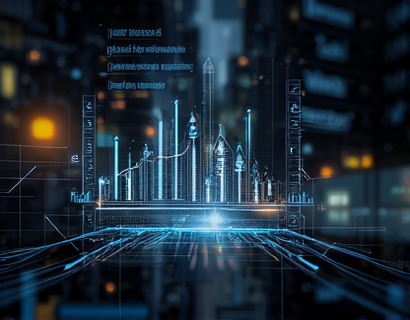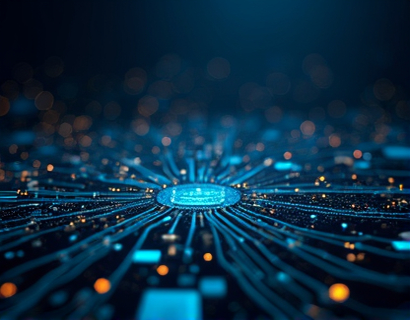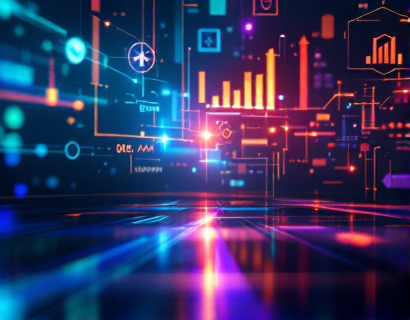Crypto and AI Synergy: Revolutionizing Digital Engagement with Advanced Ucosystem Solutions
The intersection of blockchain technology and artificial intelligence (AI) is giving rise to a new era of digital engagement, characterized by enhanced security, personalization, and interaction. This synergy is not just a technological curiosity but a transformative force that is reshaping how users interact with digital platforms and services. This article delves into the profound impact of this integration, exploring the advancements and potential of Ucosystem solutions that leverage both blockchain and AI to create more engaging and secure digital experiences.
The foundation of this revolution lies in the unique properties of blockchain technology. Blockchain's decentralized and immutable ledger provides a secure and transparent environment for transactions and data storage. This inherent security is crucial in an era where data breaches and cyber threats are increasingly common. By utilizing blockchain, digital platforms can ensure that user data is protected and that transactions are tamper-proof, fostering trust among users.
AI, on the other hand, brings a level of intelligence and adaptability that complements blockchain's security. Machine learning algorithms can analyze vast amounts of data to identify patterns, predict user behavior, and personalize experiences. When combined with blockchain, AI can operate within a secure framework, ensuring that the data used for personalization is both accurate and secure. This synergy enables the creation of highly personalized and secure digital environments that were previously unimaginable.
Enhanced Security Through Blockchain and AI
One of the most significant benefits of integrating blockchain and AI is the enhancement of security measures. Blockchain's decentralized nature means that there is no single point of failure, making it inherently more secure than traditional centralized systems. AI can further bolster this security by continuously monitoring for anomalies and potential threats. Machine learning algorithms can detect unusual patterns in user behavior or transaction data, allowing for real-time alerts and automated responses to mitigate risks.
For instance, AI-powered security systems can implement advanced fraud detection mechanisms that learn from past incidents to improve their accuracy over time. These systems can identify suspicious activities and block them before they cause harm. Additionally, blockchain's cryptographic techniques ensure that data is encrypted and secure, adding another layer of protection. The combination of these technologies creates a robust security framework that can adapt to evolving threats, providing users with peace of mind.
Personalization at Scale
Personalization is a key driver of user engagement in the digital space. AI algorithms excel at analyzing user data to create tailored experiences that meet individual preferences and needs. When integrated with blockchain, this personalization can be achieved while maintaining user privacy and control over their data. Blockchain's smart contracts can automate the process of data sharing and access, ensuring that users have granular control over what information is used and how it is used.
For example, in the context of digital content platforms, AI can analyze a user's viewing history and preferences to recommend content that aligns with their interests. Blockchain ensures that the user's viewing data is stored securely and that the recommendations are generated based on consent-based data sharing. This not only enhances the user experience but also builds trust, as users feel more in control of their digital footprint.
Moreover, blockchain-based identity verification systems can streamline the personalization process by providing a secure and verifiable way to manage user identities. This reduces the need for multiple login credentials and enhances the overall user experience. AI can leverage this verified identity information to offer seamless and personalized interactions across different services and platforms.
Improved User Interaction and Engagement
The synergy between blockchain and AI also revolutionizes user interaction and engagement. Blockchain enables the creation of decentralized applications (dApps) that operate on a peer-to-peer network, reducing dependency on centralized servers. AI can enhance these dApps by providing intelligent interfaces and automated processes that make interactions more intuitive and efficient.
For instance, chatbots powered by AI can be integrated into dApps to provide instant customer support and guidance. These chatbots can understand natural language queries, offer personalized recommendations, and handle transactions seamlessly. The use of blockchain ensures that these interactions are secure and transparent, with all transactions recorded on the ledger. This combination of technologies creates a more engaging and user-friendly experience, encouraging higher levels of user participation and loyalty.
Gaming is another area where the integration of blockchain and AI is making significant strides. Blockchain-based gaming platforms can use AI to create dynamic and adaptive game environments that respond to player behavior. Smart contracts can manage in-game assets and transactions, ensuring fairness and transparency. AI-driven NPCs (non-player characters) can offer more realistic and challenging experiences, enhancing the overall gaming experience. The security and ownership of in-game assets are also guaranteed by blockchain, reducing the risk of cheating and fraud.
Use Cases and Real-World Applications
The potential applications of blockchain and AI synergy are vast and varied. In the financial sector, decentralized finance (DeFi) platforms leverage both technologies to offer secure, transparent, and accessible financial services. AI algorithms can analyze market data and user behavior to provide personalized investment advice and automate trading processes. Blockchain ensures that all transactions are secure and immutable, reducing the risk of fraud and increasing trust in the system.
In the healthcare industry, blockchain can securely store and manage patient data, while AI can analyze this data to provide personalized medical recommendations and predict health outcomes. Smart contracts can automate the sharing of medical records between healthcare providers, ensuring that patients receive coordinated and efficient care. The integration of these technologies enhances patient privacy and data integrity, leading to better health outcomes.
In the realm of supply chain management, blockchain provides a transparent and tamper-proof record of transactions, while AI can optimize logistics and predict demand. AI algorithms can analyze supply chain data to identify bottlenecks and inefficiencies, suggesting improvements that enhance overall efficiency. Blockchain ensures that all transactions are verifiable and secure, reducing the risk of fraud and errors.
Challenges and Considerations
Despite the numerous benefits, the integration of blockchain and AI also presents several challenges. One of the primary concerns is the scalability of blockchain networks. Current blockchain technologies often struggle to handle the high volume of transactions required for widespread adoption. However, advancements in layer 2 solutions and sharding are addressing these issues, making blockchain more scalable and efficient.
Another challenge is the regulatory landscape. The intersection of blockchain and AI operates in a relatively uncharted legal territory, with varying regulations across different jurisdictions. Companies and developers must navigate these regulations carefully to ensure compliance and avoid legal pitfalls. Collaboration with regulatory bodies and adherence to best practices can help mitigate these risks.
Additionally, the complexity of integrating these technologies requires a skilled workforce. There is a growing demand for professionals who understand both blockchain and AI, and organizations must invest in training and development to build the necessary expertise. Open-source projects and community-driven initiatives can also play a crucial role in fostering innovation and knowledge sharing.
Future Outlook
The future of digital engagement is increasingly intertwined with the synergy of blockchain and AI. As these technologies continue to evolve, we can expect even more sophisticated and seamless integrations. The development of interoperable blockchain platforms will enable different systems to communicate and work together, expanding the potential applications of this synergy.
Moreover, the rise of Web 3.0, a decentralized internet powered by blockchain, will further amplify the impact of AI. In this new web paradigm, users will have greater control over their data and digital identities, with AI enhancing the personalization and security of their online experiences. The combination of these technologies will pave the way for a more inclusive, secure, and engaging digital world.
In conclusion, the integration of blockchain and AI is revolutionizing digital engagement by providing enhanced security, personalization, and interaction. The synergy between these technologies is creating innovative solutions that address the challenges of the digital age, offering valuable insights and opportunities for tech enthusiasts and professionals alike. As the landscape continues to evolve, the potential for further advancements and transformative applications remains vast.











